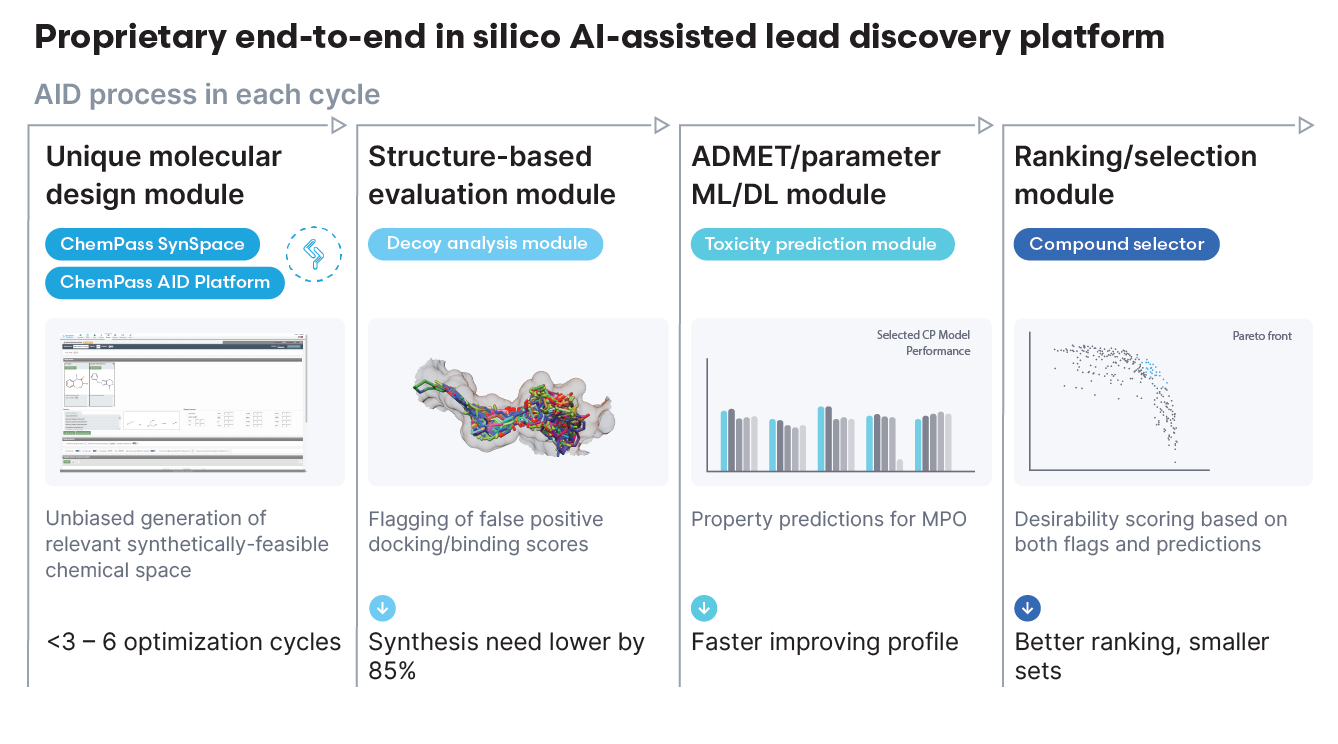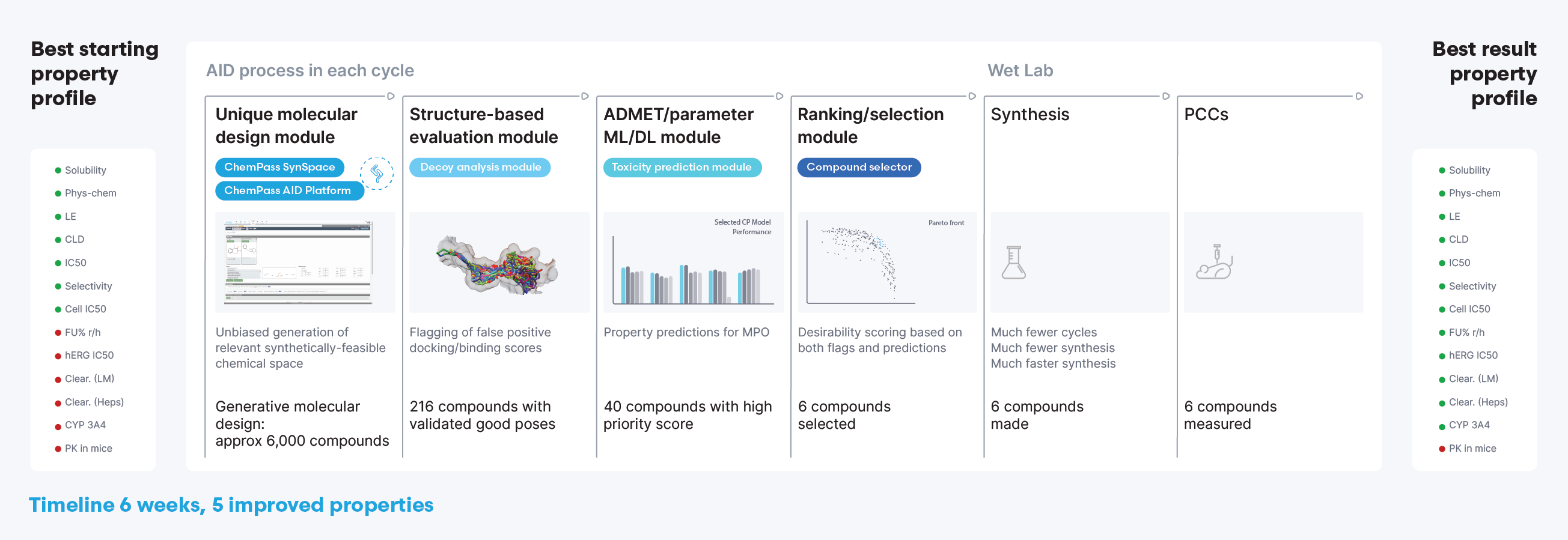AI-assisted Discovery (AID) PLATFORM
ChemPass’ AI-assisted lead discovery platform promises to revolutionize the process. Our unique AI-assisted design methods coupled with innovative solutions in analysis, scoring and selection lead to major advantages: significant expansion of patentable IP, reduction of # compounds synthesized, reduction of lead optimization time and cost, and higher success-rate. Each component in the platform is carefully optimized to fulfill its key objectives in the process while together as a whole they deliver a unified and powerful AI-platform.

AID PLATFORM COMPONENTS
The AID platform relies on the ONLY TECHNOLOGIES available today to generate a comprehensive and relevant synthetically feasible chemical space around lead structures that is a critical capability to truly reduce cycle time and cycle count in lead optimization. Powerful design components such as scaffold hopping, side-chain optimization design, focused library enumeration, and our generative design methodologies explore promising analogs of the lead while guaranteeing full synthesizability. The Decoy analysis module removes false positive poses obtained in structure-based evaluation of the virtual design set. ADMET models that are specifically built for the projects flag predicted poor parameters of high confidence. Active learning and complex selection techniques help identify the best candidates for synthesis.
CASE STUDY
A real-life lead optimization case study demonstrates the tremendous power of the AID platform to reduce lead optimization cost and cycle count. Our unique de novo design technology generates a highly relevant analog set for the program to explore MPO space. Then each subsequent module has important contribution to the continuously improving enrichment of compounds with the best overall profile. A high synthesis success rate is built into all designed compounds by the generative engine used at ChemPass. 5 criteria in the target product profile was improved by one of the selected compounds in one cycle.

AID PLATFORM COMPONENTS
The AID platform relies on the ONLY TECHNOLOGIES available today to generate a comprehensive and relevant synthetically feasible chemical space around lead structures that is a critical capability to truly reduce cycle time and cycle count in lead optimization. Powerful design components such as scaffold hopping, side-chain optimization design, focused library enumeration, and our generative design methodologies explore promising analogs of the lead while guaranteeing full synthesizability. The Decoy analysis module removes false positive poses obtained in structure-based evaluation of the virtual design set. ADMET models that are specifically built for the projects flag predicted poor parameters of high confidence. Active learning and complex selection techniques help identify the best candidates for synthesis.

CASE STUDY
A real-life lead optimization case study demonstrates the tremendous power of the AID platform to reduce lead optimization cost and cycle count. Our unique de novo design technology generates a highly relevant analog set for the program to explore MPO space. Then each subsequent module has important contribution to the continuously improving enrichment of compounds with the best overall profile. A high synthesis success rate is built into all designed compounds by the generative engine used at ChemPass. 5 criteria in the target product profile was improved by one of the selected compounds in one cycle.